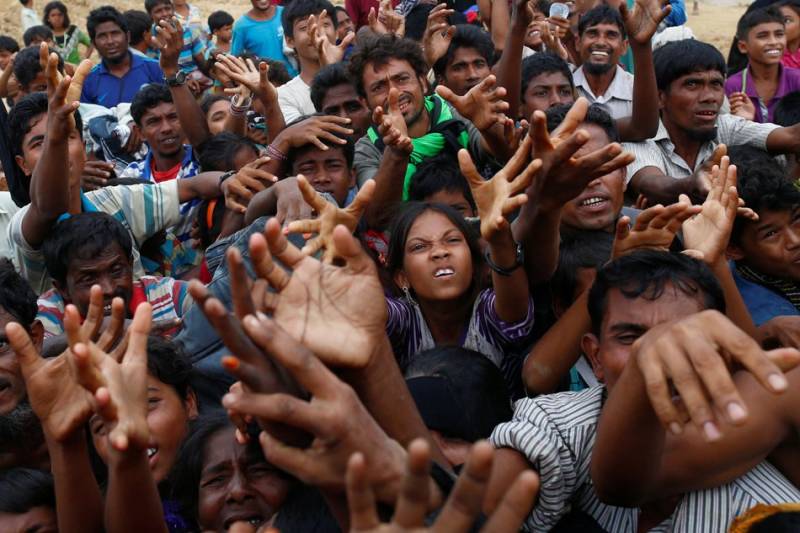The United Nations has launched an appeal for nearly $ one billion to address the urgent needs of Rohingya Muslims in Bangladesh, while stressing the importance of establishing conditions for securing the safe return of those displaced.
UN agencies and NGO partners asked for $951 million through 2018 to provide basic needs of nearly 900,000 Rohingya Muslims in Bangladesh, including some 671,000 who have arrived in Bangladesh since August.
Backed by Myanmar's government and Buddhist majority, the military launched yet another heavy-handed crackdown against the Muslim minority in Rakhine state on August 25, 2017, using a number of armed attacks on military posts as the pretext.
Only in its first month, the clampdown, called by the UN and prominent rights group an ethnic cleansing campaign, killed some 6,700 Rohingya Muslims, including more than 700 children, according to Doctors Without Borders.
Hundreds of thousands of Rohingya Muslims have fled the predominantly-Buddhist Myanmar to neighboring Bangladesh since August last year.
“We are talking about truly critical needs here both on the part of the Bangladeshi communities who have so generously opened their doors, and of a Stateless and refugee population that even prior to this crisis was among the worlds most marginalised and at risk, UN High Commissioner for Refugees Filippo Grandi said in Geneva, launching the 2018 Joint Response Plan (JRP) for the rohingya humanitarian crisis.
Over the months since the most recent Rohingya influx began, it has become the worlds fastest growing refugee crisis “ with tens of thousands fleeing by land and sea daily from Myanmar's northern Rakhine state at the peak of the emergency.
The Bangladesh Government and people have responded with extraordinary generosity and hospitality to the 671,000 Rohingya refugees who have arrived since 25 August.
Almost seven months in, refugees continue to arrive and the situation in Coxas Bazar remains fluid.
The Kutupalong-Balukhali site, where some 600,000 refugees are living, is now the largest and most densely populated refugee settlement in the world.
Precarious conditions and the ongoing emergency response there are about to be further challenged by the approaching monsoon season, placing more than 150,000 Rohingya refugees at risk of landslides and floods, threatening disaster on top of the current emergency.
The solutions to this crisis lie inside Myanmar, and conditions must be established that will allow refugees to return home, said Grandi. But today we are appealing for help with the immediate needs, and these needs are vast.
Complementing Bangladesh's continuing efforts, the 2018 appeal aims to bring together more than 100 UN agencies and national and international non-governmental organizations to ensure that refugees and host communities receive the life-saving assistance, protection and the support they desperately need. It also includes contingency planning for 80,000 more refugees in the coming months.






